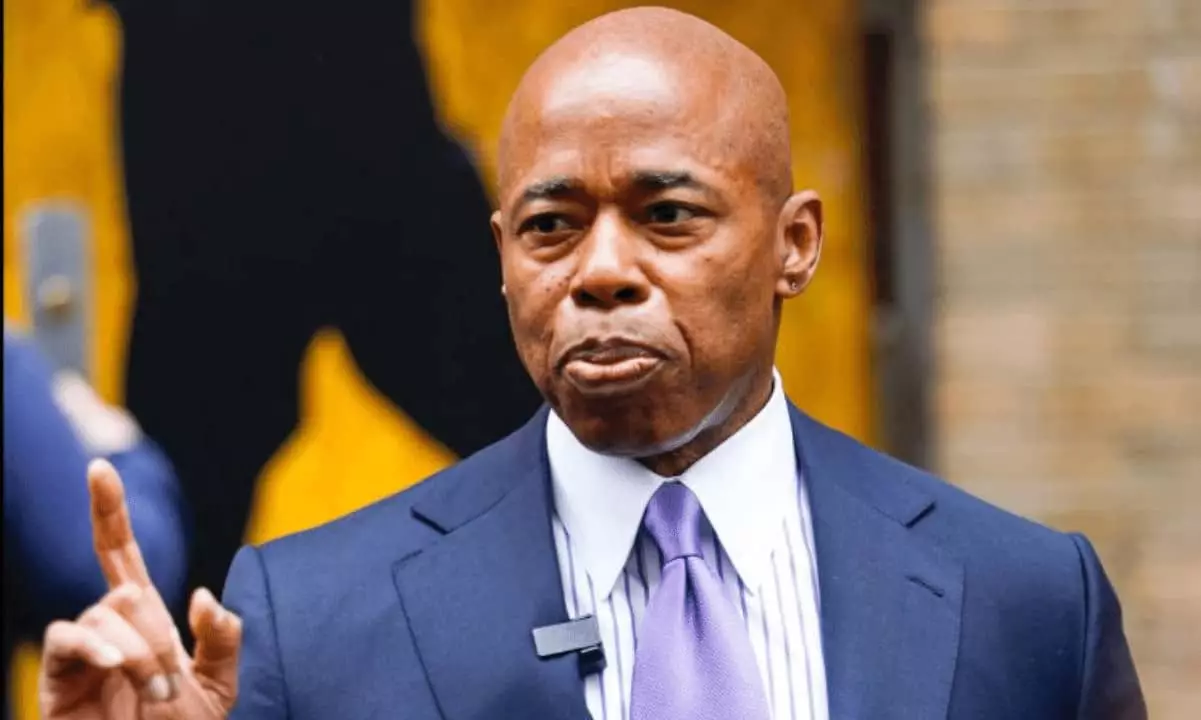New York City is no stranger to political drama, but recent developments surrounding Mayor Eric Adams could mark a significant low in the city’s governance. Following a series of corruption investigations, federal prosecutors have indicted Adams, although the specific charges remain shrouded in secrecy due to sealed indictments. This uncertainty raises questions about the implications for Adams and his administration—especially when many prominent figures within his team have already resigned or retired amid the unfolding scandal.
Adams, who marked a return to more traditional political roots as a former police captain, has often been in the spotlight since taking office. His headlines back in 2021 showcased a progressive agenda, notably his commitment to embrace cryptocurrency by accepting his initial paychecks in Bitcoin. Yet, that progressive veneer now appears at risk of being tarnished by serious allegations that invoke a sordid narrative of corruption and ethical lapses.
The connector of this investigative web is Brianna Suggs, Adams’s chief campaign fundraiser. The FBI raid on her residence in November 2023 initiated the current turmoil, leading investigators to explore whether foreign entities had funneled illicit contributions into Adams’s campaign. This situation poses grave implications for American political integrity, emphasizing the perils of foreign influence in local elections.
Additionally, the indictment of two former officials within the New York City Fire Department for bribery complicates the mayor’s predicament. Accused of accepting over $190,000 in bribes for preferential treatment in building approvals, Anthony Saccavino and Brian Cordasco’s case is emblematic of the systemic issues that can afflict bureaucratic oversight. The questionable push for the construction of the Turkish consulate in Manhattan, prioritizing development over public safety concerns, exemplifies the potential intersection of politics and unethical practices.
As the fallout from these investigations escalates, Adams faces mounting pressure to restore confidence among a city whose trust in its leadership appears to be wavering. The resignation of key figures in his administration—namely the police commissioner and the mayor’s chief advocate—illustrates a leadership vacuum that could have far-reaching consequences for governance.
Defiantly, Adams has proclaimed his innocence, suggesting he will contest any charges with fierce determination. His bold declaration, “If I am charged, I am innocent,” encapsulates a fight-or-flight mentality often seen among embattled leaders. However, one must ponder how effectively he can govern amidst this turmoil. Public trust is foundational for any politician, and proclamations of innocence may fall flat if accompanied by an inability to manage ongoing crises.
Amid the chaos, it is essential to revisit Adams’s relationship with cryptocurrency. Drawing from his earlier promises to position New York as a global center for cryptocurrency and blockchain technology, one cannot ignore the seeming contradiction between his ambitious goals and the dark clouds now looming over his administration. Adams had championed digital assets like Bitcoin and Ethereum, even going so far as to convert his first paycheck into crypto, signaling an embracing of the future.
However, this advocacy is juxtaposed against troubling acknowledgments of past oversights. The mayor’s past failure to include his cryptocurrency holdings in his financial disclosures raises questions about transparency and accountability, fundamental tenets for any public officeholder. Adams’s continued belief in the future of cryptocurrency, post-FTX collapse, may reflect genuine conviction; nevertheless, it could also be perceived as an attempt to distance himself from personal missteps during a critical moment.
As the investigations proceed, the future for Eric Adams and New York City remains fraught with uncertainty. The layers of legal battles juxtaposed against the backdrop of administrative shakeups will demand a level of resilience from Adams that he may not possess. The intersection of ambition, ethics, and governance renders a new chapter for New York City—a chapter that, if mismanaged, could lead to far more than tarnished reputations. While Adams has vowed to combat these allegations vigorously, the road ahead is tumultuous, requiring both strategic acumen and steadfast ethical governance. Only time will reveal if he can navigate through these treacherous waters and emerge unscathed, or if he will succumb to the very corruption he professes to combat.
















Leave a Reply